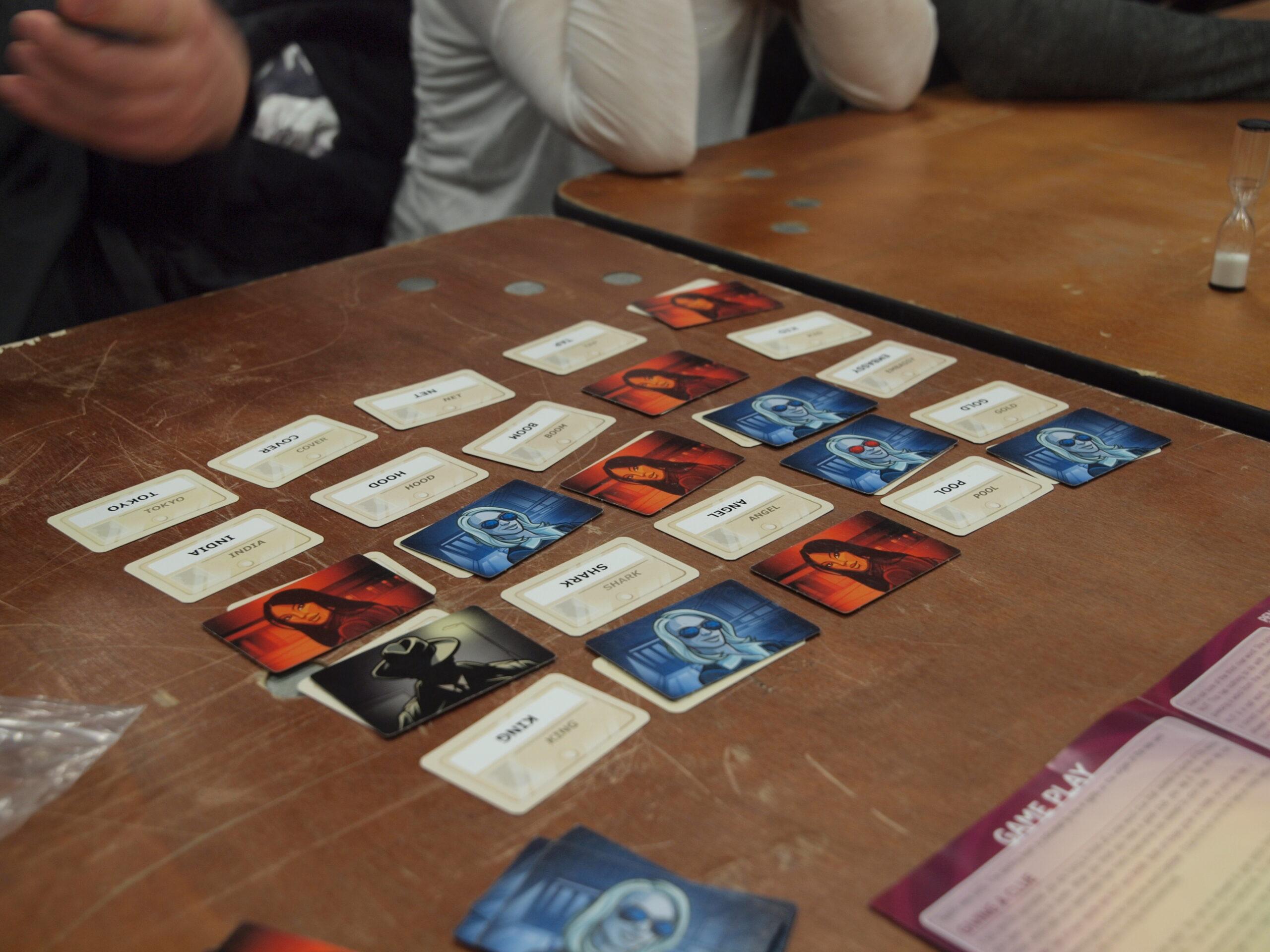For my critical play, I decided to play “Codenames,” a card game created in 2015 by Vlaada Chvatil and published by Czech Games Edition. The game is intended for 4-8 players and for ages 14 and above.
Our prototype for checkpoint 2 ended up being a modded version of charades, where we will also try to uncover secret phases based on verbal cues given by other players. Our game and Codenames share a few similarities in their design, those being the collaborative team nature of the game and the incorporation of “luck” in the games. Our games are different in their structural mechanics, leading to possible dynamic and aesthetic differences.
The premise of Codenames is simple: a player who is the spymaster for each team gives their team a one-word clue and the number of words on the board that would relate to the clue. The team then has to use this clue to figure out which words belong to their team, with their aim to guess either their own or neutral words. The team that guesses all their words the fastest wins. The words are chosen at random based on cards that indicate which cards (indicated by position) belong to each team (either blue or red).
Our charades game is similar in the collaborative team nature. In Codenames, the players have time to discuss with their teams which words they think pertain to the clue given by the spymaster. When we played the game, we found that going around and having everyone say which word they felt most confident about worked the best, as everyone was able to have some sense of equal say. Then, once some sort of consensus was reached, the team would test that word. In our charades game, the actor has to use to play off of the guesser’s reactions to adapt their actions. For instance, when we were playtesting our game, one of the acting situations was “Lost at a football game.” Initial guesses were more broad, like “athlete” or “sports games.” Given those guesses, the actor had to figure out how to specify which game or sport they were talking about. In this regard, both gameplays are far more multilateral – individual strategy does not matter as much, because players are not trying to win individually.
If we were to mod Codenames or our charade games to be player vs player (or more unilateral), the entire premise would be a completely different game.
There is also an element of luck in both games. In Codenames, the strength of the clue given depends on the spymaster’s ability to connect different words but also on the words and corresponding positions that they are given.
When we played Codenames, one of the spymasters had the words, “Dance, revolution, migration, and spread,” and thus their clue was easily “Movement, 4.” On the other hand, the other spymaster had more disjunct words and pairs of words that had connections (rather than groups of four like the other team). Ultimately, the ability of the spymaster can only go so far, as the team’s ability to win heavily depends on the luck of the draw.
Similarly, our charades game uses randomly drawn clues – thus “luck” in our game would be defined as picking a highly visual or socially relevant clue.
The differences between our games result from the lack of a shared game board. In Codenames, there is a risk of guessing either the other team’s word (and getting them ahead) or guessing the “assassin word” (which ends the game). Thus, players might be more cautious when guessing, especially on words they are not confident about. In charades, each turn is individualized – clues are separate from each other, so players can have more freedom guessing whatever they would like.
Our main focus in our charades game was to have players “roleplay” and be creative, but still in a social deduction context. At times, we feel that social deduction games can lean too heavily towards a challenge aesthetic – which can still be lots of fun – but we wanted to explore the more “fantasy” aspect. Our goal with the game was to create something where all players were on the same playing field – the mechanics themselves are less important, and the focus is mostly on developing the dynamics between players and the overall “fantasy aesthetic.”
Codenames is a very fun game, nonetheless, as it really challenges players to get creative with their definitions of words.
One recommendation for a mod of Codenames is to remove the “spymaster card” that designates which words belong to which team. It would be interesting which teams could create the longest connection of words.



